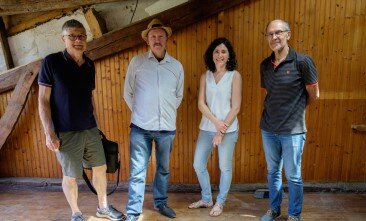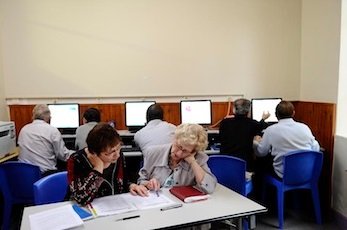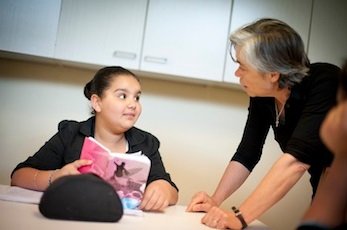




Our purpose is to reduce poverty, bring hope and solidarity to poor communities or individuals in France and worldwide. We bring assistance to families, children and young people but also to the most vulnerable (homelesses, migrants, prisoners etc.). We fight against isolation, help them to find employement and we ensure their social reintegration. We provide emergency responses but also long term support, development aid and we work on the causes of poverty. The action of Secours Catholique finds all its meaning in a global vision of poverty which aims at restoring the human person's dignity and is part and parcel of sustainable development. To do so, six key principles guide this acti... read more Our purpose is to reduce poverty, bring hope and solidarity to poor communities or individuals in France and worldwide. We bring assistance to families, children and young people but also to the most vulnerable (homelesses, migrants, prisoners etc.). We fight against isolation, help them to find employement and we ensure their social reintegration. We provide emergency responses but also long term support, development aid and we work on the causes of poverty. The action of Secours Catholique finds all its meaning in a global vision of poverty which aims at restoring the human person's dignity and is part and parcel of sustainable development. To do so, six key principles guide this action, both in France and abroad: Promoting the place and words of people living in situations of poverty Making each person a main player of their own development Joining forces with people living in situations of poverty Acting for the development of the human person in all its aspects Acting on the causes of poverty and exclusion Arousing solidarity The actions of Secours Catholique are implemented by a network of local teams of volunteers integrated into the diocesan delegations and supported by the volunteers and employees of the national headquarters. On an international level, Secours Catholique acts in cooperation with its partners of the Caritas Internationalis network. Key figures of Secours Catholique: 100 diocesan or departmental delegations 4,000 local teams 65,000 volunteers 974 employees 2,174 reception centres 3 centres : Cite Saint-Pierre in Lourdes, Maison d'Abraham in Jerusalem, Cedre in Paris 18 housing centres managed by the Association des Cites of Secours Catholique 162 Caritas Internationalis partners 600,000 donors Every year Secours Catholique encounters almost 700,000 situations of poverty and receives 1.6 million people (860,000 adults and 740,000 children). This daily mission led in the field by the local teams and delegations, with the support of national headquarters, pursues three major objectives which aim at exceeding the distribution action and limited aid: Receiving to reply to the primary needs (supplying food and/or health care aid, proposing accommodation, establishing an exchange and a fraternal dialogue, etc) Supporting to restore social ties (bringing together people in difficulty with an aim to reinsertion, encouraging personal initiatives and collective projects, establishing a mutual support helper-receiver of help relationship, etc) Developing to strengthen solidarity (proposing long lasting solutions, establishing a follow-up over the long term, encouraging collective actions carried out by people in difficulty etc.)


Each of GlobalGiving’s nonprofit partners is required to send quarterly donor reports detailing the impact of their work. Here are some of their recent updates:
By Chantal Bianchi | Project manager
In rural areas, the use of the car is made essential by the scattered nature of the areas of activity, occupation and housing, and by the weakness of transport services other than school transport.... Read the full report ›By Chantal Bianchi | Project manager
In France, one in five households is in a situation of fuel poverty, or nearly four million families, who suffer from the cold or health problems, or are faced with heating bills that are impossible... Read the full report ›By Chantal Bianchi | project manager
Food, an essential challenge for Secours Catholique – Caritas France Food question represents a major health, territorial and environmental issue. Many French people, aware of the impact... Read the full report ›